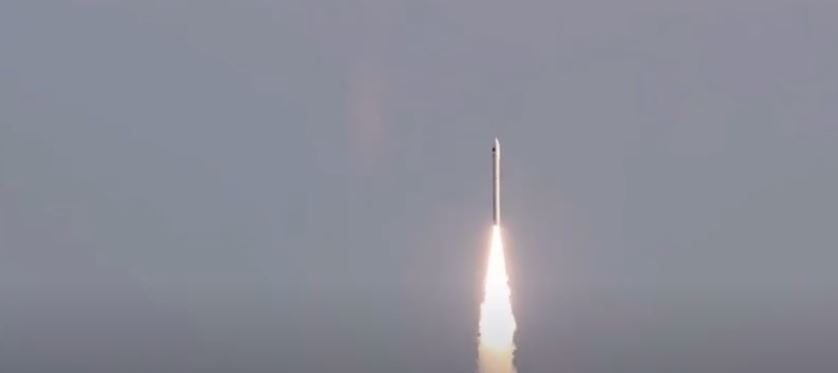China’s burgeoning private aerospace industry faced a significant hurdle on Thursday when the launch of the Hyperbola-1 rocket, developed by the private company i-Space, ended in failure. This incident, reported by the official Xinhua news agency, marks a sobering moment for China’s ambitious space exploration endeavors. The event took place at the Jiuquan Satellite Launch Center, a site synonymous with many of China’s space triumphs. As investigations commence to determine the root cause of this failure, the aerospace community is closely monitoring the situation.
The Hyperbola-1 Rocket and Its Significance
The Hyperbola-1 rocket, a brainchild of i-Space, symbolizes the rapid advancements and aspirations within China’s private space sector. This launch vehicle was intended to bolster China’s capabilities in satellite deployment, showcasing the potential of private enterprises in contributing to the nation’s space agenda. The successful launch of such rockets is crucial for expanding satellite communication networks, enhancing weather forecasting, and facilitating scientific research.
The Launch Failure: Initial Reports and Investigation
According to Xinhua, the Hyperbola-1 rocket exhibited abnormal flight behavior shortly after liftoff. Specific details regarding the nature of this anomaly remain undisclosed, heightening speculation and concern within the aerospace community. The Jiuquan Satellite Launch Center, known for its stringent protocols and successful track record, is now the focal point of a meticulous investigation aimed at unraveling the technical issues that led to this failure.
Impact on i-Space and the Broader Aerospace Sector
For i-Space, this launch failure represents a significant setback. As one of the frontrunners in China’s private aerospace industry, i-Space has been instrumental in demonstrating the viability and potential of private sector contributions to space exploration. This failure, however, serves as a stark reminder of the inherent challenges and risks associated with space missions. It underscores the necessity for rigorous testing, robust design, and resilient engineering practices.
The Path Forward: Learning from Setbacks
Failures in space missions, while disappointing, are not uncommon. They often serve as invaluable learning opportunities, prompting introspection and innovation. For i-Space, the immediate focus will be on conducting a thorough investigation to identify the precise cause of the anomaly. This will likely involve scrutinizing pre-launch procedures, analyzing flight data, and examining the rocket’s design and components. The insights gained from this investigation will be pivotal in refining future launches and enhancing the reliability of subsequent missions.
The Role of Private Aerospace Companies in China
The rise of private aerospace companies like i-Space is a testament to China’s evolving approach to space exploration. Traditionally dominated by state-owned enterprises, China’s space sector has increasingly welcomed private firms, fostering a competitive and innovative environment. These private entities play a crucial role in diversifying capabilities, driving technological advancements, and accelerating the pace of space exploration. Despite the recent setback, the contributions of companies like i-Space remain vital to the overall growth and success of China’s space ambitions.
Historical Context and Future Prospects
China’s space program has made remarkable strides over the past few decades. From launching crewed spaceflights to deploying sophisticated satellites and exploring the moon and Mars, China’s achievements in space are a source of national pride and international recognition. The participation of private companies in this domain is a relatively recent development, yet it holds the promise of further enhancing China’s space capabilities. While the failure of the Hyperbola-1 rocket is a temporary setback, it is unlikely to deter the momentum of China’s space endeavors.
Conclusion
The failure of i-Space’s Hyperbola-1 rocket launch underscores the challenges inherent in space exploration. However, it also highlights the resilience and determination of the aerospace community to overcome obstacles and continue pushing the boundaries of what is possible. As investigations proceed and lessons are learned, i-Space and other private aerospace companies in China will undoubtedly emerge stronger and more capable. The journey to the stars is fraught with difficulties, but each setback brings the aerospace industry one step closer to achieving its lofty goals.
Soumya Smruti Sahoo is a seasoned journalist with extensive experience in both international and Indian news writing. With a sharp analytical mind and a dedication to uncovering the truth, Soumya has built a reputation for delivering in-depth, well-researched articles that provide readers with a clear understanding of complex global and domestic issues. Her work reflects a deep commitment to journalistic integrity, making her a trusted source for accurate and insightful news coverage.



